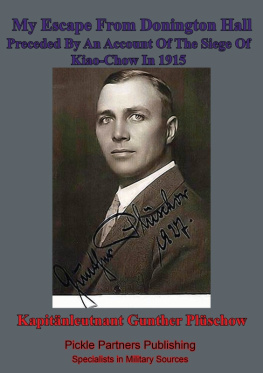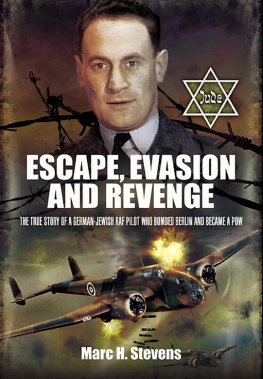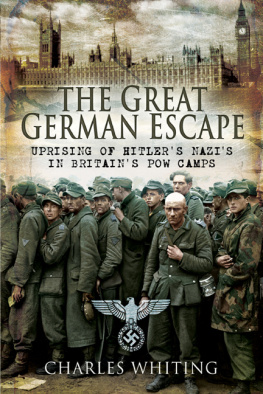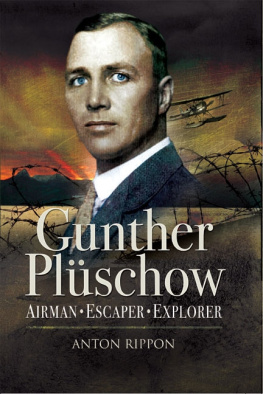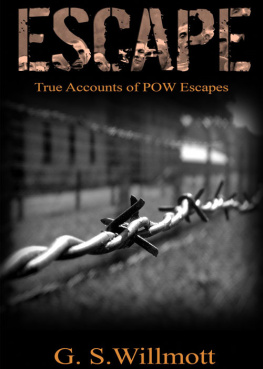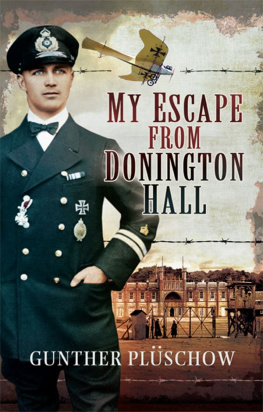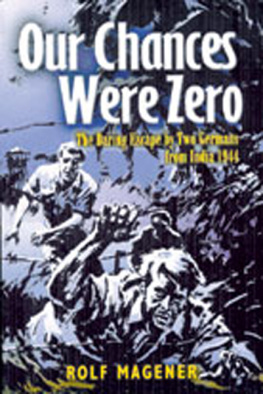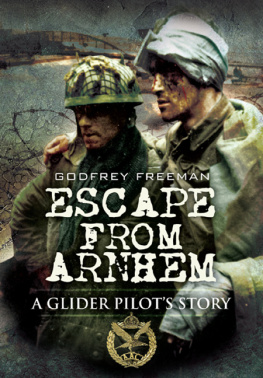

This edition is published by PICKLE PARTNERS PUBLISHING www.picklepartnerspublishing.com
To join our mailing list for new titles or for issues with our books contact@picklepartnerspublishing.com
Text originally published in 1922 under the same title.
Pickle Partners Publishing 2013, all rights reserved. No part of this publication may be reproduced, stored in a retrieval system or transmitted by any means, electrical, mechanical or otherwise without the written permission of the copyright holder.
Publishers Note
Although in most cases we have retained the Authors original spelling and grammar to authentically reproduce the work of the Author and the original intent of such material, some additional notes and clarifications have been added for the modern readers benefit.
We have also made every effort to include all maps and illustrations of the original edition the limitations of formatting do not allow of including larger maps, we will upload as many of these maps as possible.
MY ESCAPE FROM DONINGTON HALL
PRECEDED BY AN ACCOUNT OF THE SIEGE OF KIAO-CHOW IN 1915
BY KAPITN-LEUTNANT GUNTHER PLSCHOW, OF THE GERMAN AIR SERVICE.
TRANSLATED BY PAULINE DE CHARY

Contents
CHAPTER I
THE JOYS AND SORROWS OF A FLYING-MAN
IT was in the month of August of the year 1913 when I arrived in my native town, Schwerin. I had stayed several weeks in England, where I had devoted days to the visit of museums and the beautiful art collections, as well as to excursions in the vicinity of the capital. At that time I did not foresee how useful the latter would prove to me two years hence.
During the whole journey I was labouring under an inner excitement and disquiet which I could not throw off, and when I arrived in Schwerin one question only burned on my lips, and yet I did not dare put it to my uncle who fetched me from the station. For the new Naval List of autumn promotions and appointments might be issued any day, and I was on the tiptoe of expectation as to whether the wish I had cherished for years was at last to be gratified.
My uncle's question: Do you know where they've put you? gave me an electric shock.
No.,
Well, then, hearty congratulations Naval Flying Corps!
I was so overjoyed that I would like to have turned a somersault in the middle of the street, but I refrained from fear of upsetting my fellow-citizens.
So I had got my wish after all!
The last days of my leave passed in a flash, and I gaily returned to the Naval College in order to complete my course of a year and a half as Inspecting Officer; but I never packed my trunks with greater pleasure than when bound for my new destination.
Just a few days before my departure one of my brother officers called out to me: I say, have you heard the latest news where you're off to?
Yes; Flying Corps.
Good Lord, man! You don't know your own luckwhy, you're off to Kiao-Chow.
I was speechless, and probably looked as stupid as I felt.
Yes; Kiao-Chow! And in the Flying Corps! You lucky devilto be the First Naval Flying Officer at Kiao-Chow!
It is hardly surprising that I refused to believe this until I received the official confirmation. But it was true. I had tremendous luck!
I had to wait three months longer at Kiel; but at last, on the 1st of January 1914, I found myself in my beloved Berlin. But there was no holding me; I was at Johannisthal on the 2nd of January already, and thought I could start flying on the spot. My experience, however, was that of the majority of flying-pupils. I learnt for the first time the time honoured principle of flight: Keep cool; who wants to fly must above all things learn to wait.
Wait, wait, and once more wait. Eighty per cent of the science of flying consists in waiting and holding oneself in readiness.
Winter had come and covered the aerodrome with a deep, white carpet, making flying impossible. For weeks every morning I had the hope that the snow would melt at last, and every afternoon I returned home disappointed.
In February at last the weather changed. On the 1st of February I sat happily in my Taube, and for the first time rose into the glorious clear winter air. It was beautiful now; and every day our schooling progressed.
Flying suited me, and I grasped it quickly. And I was very proud that on the third day I was allowed to fly alone. Two days later, on a beautiful Saturday afternoon, my untiring instructor, Werner Wieting, asked me whether I would not care to create a nice little record by passing my examination as pilot. I enthusiastically agreed.
Ten minutes later I sat in my machine, circling gaily in the prescribed curves. It was a real joy to keep going in the lovely winter air. And when I achieved a perfect landing, which concluded my examination, and my teacher proudly shook me by the hand and congratulated me, I felt extremely happy and filled with a sensation of inner satisfaction.
At last I was a pilot. The school-stage was over, and from now onwards I could fly daily on one of the big 100 h.p. machines.
One particular undertaking was to be the source of much pleasure to me. Rumpler had just completed a monoplane which was specially designed for climbing. It now became our aim to achieve a high-altitude flight record. The famous pilot, Linnekogel, was to fly the machine, and he asked me to accompany him as observer. It was only natural that I accepted with delight.
On one of the last days in February we started on our first trial trip. Warmly wrapped up against the severe cold, we sat in our machine, and many eyes followed us with envy as our bird rose in the air with the lightness of a dragon-fly. Watch in hand, I noted the altitude, and after fifteen minutes we had already reached 2000 metres, which at that time was considered an extraordinarily good performance. But after that we only progressed slowly. The atmosphere became bumpy, and we were flung about like feathers by violent eddies or bumps. After an hour we had at last reached 4000 metres, when with a popping and spluttering noise the motor began to run irregularly, and stopped altogether after a few seconds. We now descended in spirals towards the earth, and some minutes later the machine stood unharmed on the flying-ground.
The cold had been too great, and the motor was simply frozen a circumstance which nobody had foreseen. New improvements were promptly added. After a few days we started again on the same adventure, but this time better luck seemed in store for us. We climbed steadily and securely 4000 metres, 4200, 4500 metres. Thank God, our last record was broken! The cold was well-nigh unbearable, and I am convinced that the thickest hide would have been no protection against it.
4800, 4900 metres! 400 more and our object was attained. But the machine seemed bewitched, and refused to climb another metre! All our attempts to induce an extra effort failed. We were running short of petrol, and the engine gave out completely this time.
An altitude of 4900 metres! We landed, without a single drop of petrol, nearly frozen to ice. We had not achieved all we had set out to do; however, it was a good result. We had won, and won brilliantly, the German high-altitude record.
But success made us ambitious. At the beginning of March weather conditions again improved sufficiently to allow us to try our luck once more. More warmly clad than last time, and fitted out with thermometers, though without an oxygen apparatus, we started on our third attempt.
Next page
